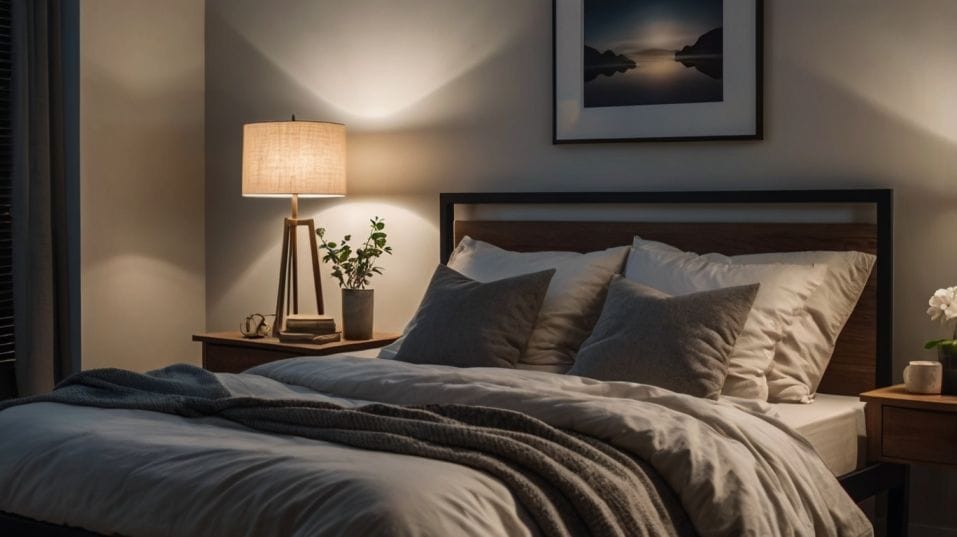The Best Time to Sleep for Physical Recovery
Unlock faster recovery, better energy, and sharper focus by syncing your sleep to your body’s rhythm. Start feeling unstoppable tonight.

What if the key to faster recovery, sharper focus, and better workouts wasn’t another supplement — but simply sleeping at the right time?
Most people don’t realize their body’s natural rhythm is the real game-changer for energy and healing. If you’re tired of waking up drained or hitting walls in training, you’re in the right place.
Let’s break down how a smarter sleep schedule can supercharge your strength and recovery, starting tonight.
Why Sleep Timing Changes Everything
You already know sleep is important. But when you sleep might matter even more than how much.
Your body runs on an internal clock called the circadian rhythm — a natural 24-hour cycle that controls energy, metabolism, muscle recovery, and hormone release. Every cell you have is tuned into this rhythm.
When you sync your sleep with it, everything from tissue repair to fat burning happens more efficiently. Ignore it, and you’re stuck trying to recover with your hands tied behind your back.
Most of your deepest, most restorative sleep happens earlier in the night, especially between 10 p.m. and 2 a.m.
This stage, known as slow-wave sleep (SWS), is when your brain clears out waste, your muscles rebuild stronger, and vital hormones like growth hormone surge.
Shift your sleep later, and you shrink this prime recovery window. Even a full eight hours starting at 1 a.m. won't repair your body the same way sleeping from 10 p.m. would. Recovery isn’t just about quantity — it’s about timing.

The Ideal Window for Maximum Recovery
Want to work with your biology instead of against it? Here's the simple truth: your body is primed to recover best when you fall asleep between 9:30 and 10:30 p.m.
That’s when melatonin, your body’s natural sleep hormone, peaks. That’s when cortisol, your stress hormone, naturally drops.
That’s when your body turns on the “rebuild and restore” machinery that makes everything from better muscle tone to sharper brain function possible.
Consistently hitting that window is like flipping a master switch that tells your body, “It’s go time.” Recovery isn’t random — it’s engineered.
This consistency is what separates the people who wake up feeling half-dead from the ones who pop out of bed with actual energy to burn.
How Early Sleep Supercharges Your Body
When you hit the right sleep timing, your body isn’t just idling — it’s working smarter:
- Growth hormone floods your system, repairing muscle fibers, rebuilding tissue, and keeping your metabolism sharp.
- Muscle glycogen stores refill faster, meaning better endurance and stronger workouts the next day.
- Inflammation drops naturally, reducing soreness, stiffness, and fatigue.
- Tendon and ligament strength improves, making you more resilient to both training and daily physical demands.
You won’t need guesswork or gimmicks to “boost recovery” anymore. Your body will handle it automatically — the way it’s built to — because you finally stopped fighting your natural rhythm.
Making Early Sleep Fit Your Real Life
Building this into your life isn’t about sacrificing your entire evening or becoming some antisocial monk. You need a few strategic shifts to make the early sleep window feel automatic:
1. Win the Last Hour Before Bed An hour before you want to fall asleep, start winding down on purpose. Drop screen time to zero if you can.
Blue light from your phone and TV blocks melatonin production and delays your body’s sleep signal. Switch to soft lighting.
Read something low-stakes. Stretch. Breathe. Move slow. You’re sending clear messages to your body: it’s safe to shut down now.
2. Anchor Your Wake-Up Time If you want to fall asleep earlier, start by waking up earlier — even on weekends. Your circadian rhythm locks onto your morning wake time.
Get sunlight on your skin within the first 30 minutes of waking up. This locks in your sleep drive so you actually feel tired by 9:30 or 10 p.m. without needing to force it.
3. Build a Power-Down Routine That Works for You Some people swear by meditation. Others need a hot shower or a little nighttime journaling. Some just need to turn the damn lights off and breathe.
It doesn’t matter what your ritual is — it matters that you have one. Habits before bed create neurological shortcuts that make falling asleep on time automatic.
4. Watch Out for the “Second Wind” Trap If you stay up too long past your natural sleep window, your body often releases a fresh surge of cortisol to keep you awake.
That’s why you suddenly feel wide awake at midnight if you blow past 10 p.m. Don’t try to “push through” it. When your body says sleep, listen immediately. That’s your biological prime time for healing.
The Hidden Wins You’ll Notice Fast
Locking into earlier sleep won’t just help you recover physically. It’ll ripple into every part of your day:
- Morning focus becomes laser-sharp.
- Mood swings smooth out without extra caffeine.
- Workouts feel stronger, faster, cleaner.
- Stress resilience climbs without needing extra willpower.
- Cravings for junk food drop without a fight.
Most people grind through life thinking this sluggish, drained version of themselves is normal. It’s not. It's just a side effect of missing your prime recovery window.
You’re closer than you think to feeling like the high-energy, fast-recovering machine you were built to be. You just need to start sleeping when your body actually wants to heal.
Final Thoughts
If you want to build real strength, real energy, and real resilience, you have to master when you sleep — not just how long.
The real magic for physical recovery happens when you fall asleep between 9:30 and 10:30 p.m. and give your body the chance to maximize its natural recovery processes.
No hacks. No complicated plans. Just a smarter schedule that lets your biology do what it does best.
Start tonight. Shut it down early. Get in bed before 10:30. Unlock the real potential that’s been waiting for you under the surface.
You’re not just chasing better sleep — you’re building a better body, a better mind, and a better life.




